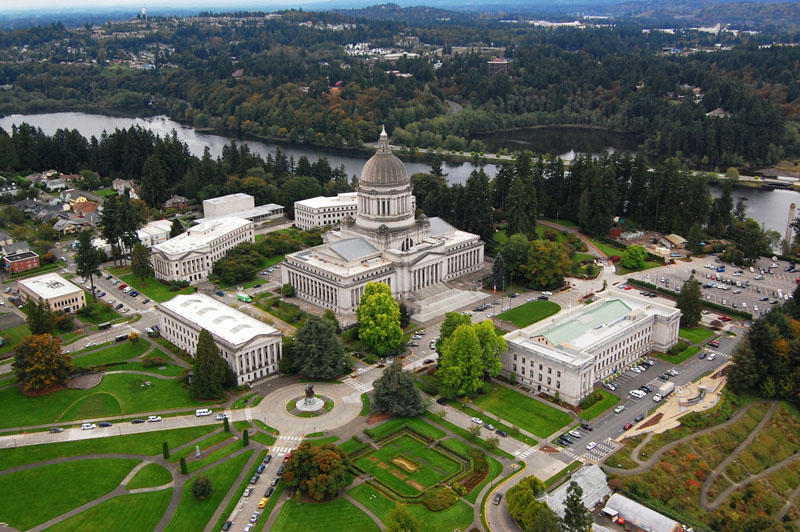
February 14th marked a significant calendar cutoff day in Olympia. Bills that did not receive enough love to pass out of their house of origin by the end of that day are considered dead for the rest of the session. (Note: this excludes legislation that has a significant fiscal impact, such as tax bills.) Out of the several thousand bills introduced since the start of the session, 567 are still considered alive.
Those that remain are moving to the opposite house for public hearings in policy committees. The next week will be critical as these bills have only until Friday, February 23rd to be heard and passed out of committee.
We expect to see House and Senate versions of the 2018 Supplemental Budget early next week, at which time negotiations between the two chambers over a final budget will begin. Lawmakers received good news this week from the state’s Office of Financial Management, which announced that overall state revenues have increased by nearly $628 million for the current two-year budget that ends mid-2019. This is the largest quarterly increase since before the 2008 recession. These numbers are particularly welcome as lawmakers have been ordered by the state Supreme Court to expedite their time frame to pay for the teacher and staff salary portion of the plan passed last year to fully fund basic education.
Here are the bills AIA Washington Council has been following most closely:
Climate
- SB 6203, the governor’s carbon tax bill, is still alive and was heard in the Senate Ways & Means Committee this week. This bill is frequently amended and now calls for a $12/ton carbon tax. AIA is particularly monitoring the section of the bill that provides funding to energy efficient projects, including those related to new and existing buildings.
Codes
- Legislation to provide greater funding to the State Building Code Council, HB 1622, remains a step ahead of most other bills, this week passing out of the Senate State Government Committee.
- HB 2931, to create target tiers at 10% and 20% above state residential energy code ̶ which local governments could voluntarily select ̶ failed to reach the floor of the House and is dead for the session.
Livability & Affordability
- HB 2444 to allow cities to enact up to a 0.25% additional Real Estate Excise Tax for affordable housing remains alive and was heard in the Senate Ways and Means Committee this week.
- Legislation to allow local governments to exempt property tax on multi-family units that are designated for affordable housing, SB 5182, failed to move forward.
Practice
- HB 1325 on the scoring and prioritization of capital budget projects at Washington’s community colleges and universities remains alive. AIAWA continues to have concerns about its attempt to establish standard cost estimates given the multiple variables that impact costs. This bill passed the House unanimously but has not yet been scheduled for a hearing in the Senate.
- Two bills opposed by AIAWA remain alive and are being considered in policy committees in the opposite chamber: SB 6015 to broaden the number of plaintiffs who can sue for wrongful injury or death benefits; and HB 1851, requiring public agencies and institutions of higher learning to perform a cost-benefit analysis comparing the cost of having the work done by agency staff or by a private entity when contracting for any services.
- On condo liability reform, both the good (HB 2831) and the bad (HB 2475/SB 6523) construction defect claims bills failed to pass. The only condo-related bill that remains alive is Sen. Jamie Pedersen’s re-write of the Condo Act (SB 6175), which passed the Senate but does not change current liability laws for architects.
Tax, Capital Budget, Education
- The B&O tax bill (HB 2940) that would provide tax relief to small firms at the expense of large firms remains alive but has not passed the House. Because it has significant fiscal impact, it does not have to adhere to cut-off dates.
- SB 6531, to amend the program that funds construction of new schools and modernizes existing facilities, passed the Senate and is in the House Capital Budget Committee. The bill expands state funding for schools by increasing the space allocated per student and the dollar per square foot amount to more realistic levels – and provides increased funding for architectural fees as a result.
- Legislation (SB 6246) to lower the threshold for school bonds levies to 55% failed to pass. AIAWA supported the legislation.
For more information about these or other legislative issues, contact Kirsten Smith, manager of policy and advocacy, at kirstens@aiaseattle.org or 206-488-4938 x401.

